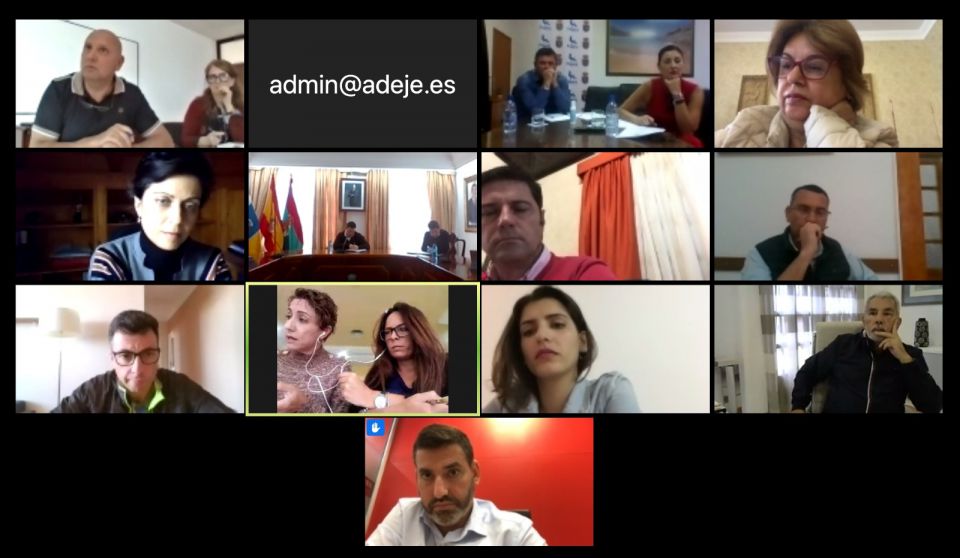Over 73 thousand workers of the almost 20 thousand in the Canary Islands currently on social welfare (ERTE) as a result of the Covid-19 crisis were employed in one of the 13 member boroughs of the AMTC (The Canarian Tourism Boroughs Association), and those same boroughs saw over 19,000 jobs lost in March of this year.
The board of the AMTC spoke yesterday online to discuss possible solutions to the difficult situation and to look at how they should be liaising with bodies such as the regional and national governments with regard to their particular situation. The association wants those bodies to seek to give the matter “urgent priority status” and look to be more flexible in their economic regulations, and allow the boroughs use the budget surpluses they have in the banks, “money that we have accumulated in savings in the years up to 2019”, according to the association president José Miguel Rodriguez Fraga (Adeje mayor) and vice-president Onalia Bueno (Mogan mayor).
The AMTC say that it is vital that tourism be a part of the overall national debate about the economic recovery of Spain given the important part it plays in the economy and society in general. The association should be part of those discussions and therefore has requested meetings with the regional and national tourism chiefs.
The figures speak for themselves – of the 195,183 workers now on ERTE, 73,137 were working in one of the member boroughs, that’s 37.47% of the total. In March of last year the boroughs created almost 2,000 jobs, this year the crisis has destroyed almost 20,000 in the same areas. “Normally we are the boroughs that are leading the way in job creation as the zone that fuels the economic motor of the Canaries, but facing up to a crisis of this kind sees the tables turned, and we are now suffering more that most regions in terms of jobs lost and damage to the economy”, said the Mogán mayor.
To counteract the situation it is, say the association, absolutely vital that the boroughs be allowed access the money accumulated by the boroughs in the years to date. “The government has calculated that the Canarian GDP will fall by 20%, by €10 thousand million, which could ultimately destroy 350 jobs – so we have to stop that happening with measures that need to be financed, and the money is here, frozen in the banks, it just doesn’t make sense” stated the mayor of Adeje. And if the boroughs are not allowed used this money they will ask the state to permit the boroughs work up a debt that can be then regulated.
The association says that there is a need for a national tourism pact and they are also going to ask the the EU to prepare an aid plan for the sector and incentivise flights from Europe using European funds. They are planning a communication and promotion plan to explain to the international public that the “Canary Islands are a safe quality destination, something which has been demonstrated to be of great important to visitors to the islands in the past.
The 13 member boroughs of the AMTC, Adeje, Arona, San Bartolomé de Tirajana, Mogán, Tías, Guía de Isora, Antigua, Yaiza, Pájara, Santiago del Teide, Puerto de la Cruz, TEguise and La Oliva, have an estimated €800 million banked, and are now saying that at least some of this money should be used to start to create plans for jobs and incentives for other related economic sectors, help small and medium enterprises and the self-employed,
The AMTC joins a call by FECAM, the Federation of Canarian boroughs, to the Spanish government, for flexibility similar to that of the EU to those countries suffering most as a result of the crisis, and in how the government have already expressed a willingness to allow for flexibility for different regions in the rules regarding costs and debts.
The association does not want this money to be used as a contingency fund for emergency social funding, but separately, to be invested in plans for public employment creation schemes and investment in local companies, as well as other local sectors related to tourism who will need to be ready to reactivate their productivity and begin again to generate employment.
